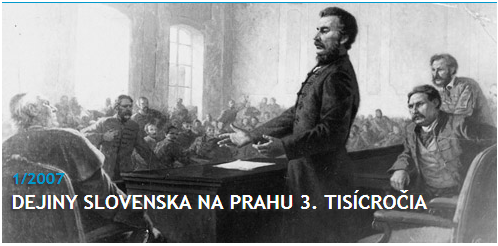Maďarské motívy pri vzniku a rozpade československého národného príbehu, 1890 - 1930
Hungarian Motifs in the Emergence and Decline of the Czechoslovak National Narrative, 1890 - 1930
Author(s): Peter HaslingerSubject(s): Political history, Nationalism Studies, 19th Century, Pre-WW I & WW I (1900 -1919)
Published by: SAV - Slovenská akadémia vied - Historický ústav SAV
Summary/Abstract: This paper tries to analyze the development of discourse over the concept of Czechoslovakism, the official national narrative of the First Czechoslovak Republic. Within that frame, it focuses on the development of Slovak question during World War I. and the 1920ies. It will do so not only by trying to elaborate on the discussion on Slovak individuality within the national collective form a Czechoslovak perspective, but also will try to analyze the incorporation of "Hungarian" elements into the national narrative. As basis for investigation, this paper bases its argumentation on political literature of a broader range (Publizistik). By doing so it will not only take into account works of high-ranking representatives of the state, who were well represented among the authors, but also include publications of official or semi-official character. The paper will conclude that inclusion of Hungarian elements into the Czechoslovak national concept rather proved to be a source of destabilization of the new state narrative, insofar as neither Czechs nor Slovaks had the capacity to conceptionalize their new national community. As a conclusion it will be suggested to apply the concept of imagined territories as an independent category of analysis for further investigation on the rhetoric of nationalism.
Journal: Forum Historiae. Časopis a portál pre históriu a príbuzné spoločenské vedy
- Issue Year: 1/2007
- Issue No: 1
- Page Range: 34-48
- Page Count: 15
- Language: Slovak

